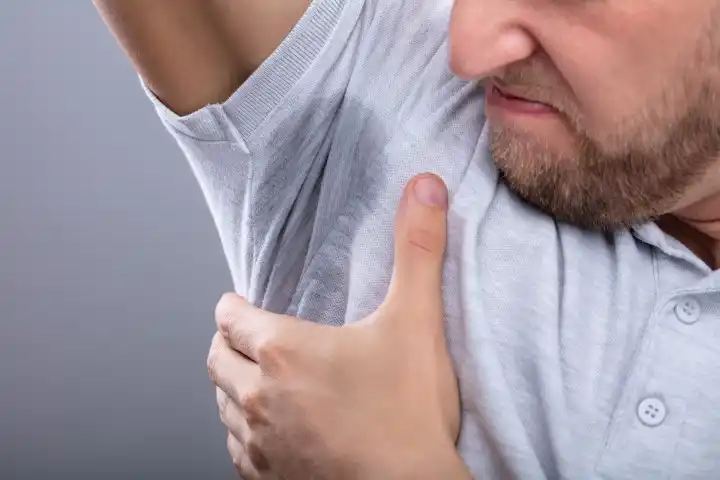Body Odour: Causes and Prevention
- What causes body odour?
- Eccrine glands
- Apocrine glands
- Apoeccrine glands
- How to get rid of body odour
What causes body odour?
Despite what many people think, fresh sweat does not smell and, on its own, does not cause body odour. Body odour actually occurs when bacteria react with different types of chemicals in our bodies and break them down into molecules called odorants. When our body has a buildup of odorants, this causes an unpleasant smell – or what we may perceive as smelly sweat.
Sweat is actually rich in many nutrients and chemicals that serve as food for the bacteria on your skin and encourages their growth. The more the bacteria thrive, the more odorants they create, which is why sweat is often associated with body odour. Changes to your diet, hormones and the amount and type of bacteria on your skin can alter the composition of your sweat and impact your body odour.
To better understand how sweat influences body odour, it helps to know about the different types of sweat glands – eccrine glands, apocrine glands and apoeccrine glands.

Eccrine glands
Eccrine glands are found all over your body and produce large amounts of sweat, though this sweat contains mostly just water and salt. Eccrine glands are active from birth and people have between 2 to 4 million in total.* They are most dense on the palms of your hands and soles of your feet.
Apocrine glands
Apocrine glands become active during puberty are mostly found in your armpits and genital areas – in fact, they are particularly present in armpits and are a significant contributor to armpit sweating. Apocrine glands are larger than eccrine glands and open into hair follicles instead of the skin surface. While they produce less sweat than eccrine glands, apocrine sweat is rich in nutrients that provide an excellent environment for bacteria, making it the usual source for unpleasant body odour. People prone to body odour will often have a lot of odour- causing bacteria in their apocrine glands. Apocrine glands are also responsible for releasing natural chemicals called pheromones, which play a role in attracting or repelling other people and also contribute to body odour.
Apoeccrine glands
Apoeccrine glands share a combination of characteristics with both eccrine and apocrine glands. They are only found in the armpit.
How to get rid of body odour
Preventing body odour is usually as simple as maintaining good personal hygiene. Here are some easy steps:
- Bathe or shower at least once a day, paying extra attention to your armpits and groin to help remove bacteria that cause body odour. Be sure to use soap, shower gel or a body wash as this helps to remove germs.
- Use a deodorant or antiperspirant on your armpits. Antiperspirants usually contain an ingredient that helps to reduce sweat, and the addition of fragrances can help to mask odour.
- Unwashed clothes, like underwear and socks, can also contribute to body odour. Put on clean, dry clothing after washing and practice good laundry hygiene too.
*Baker LB 2019. RB-M-14054.
First published:
Last updated:
